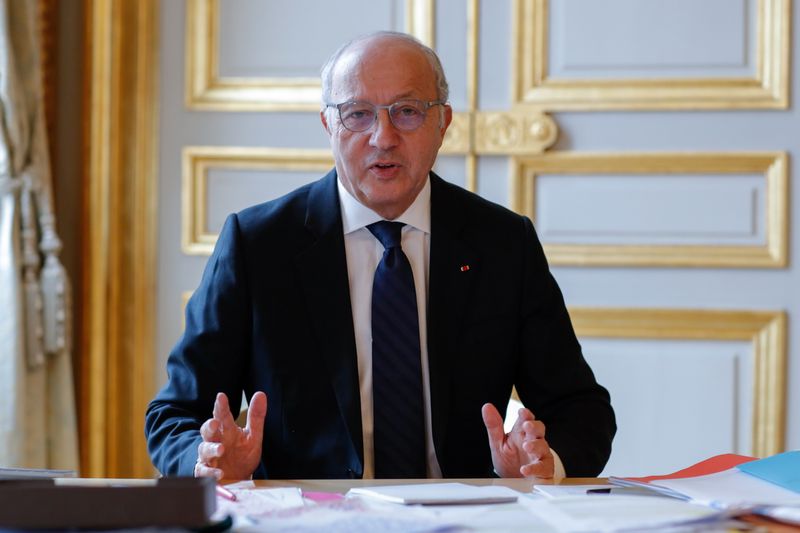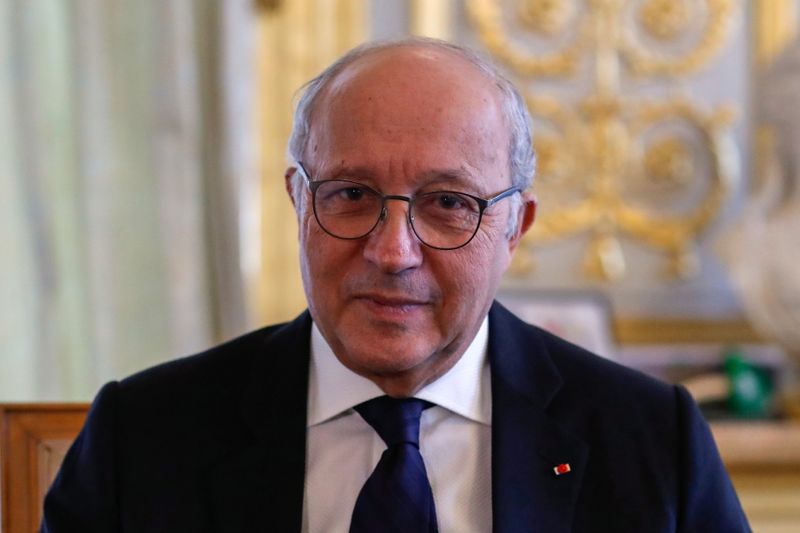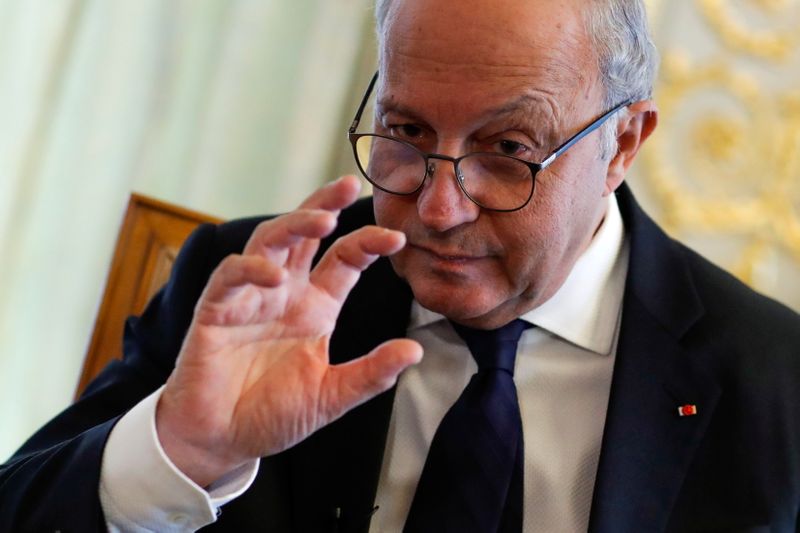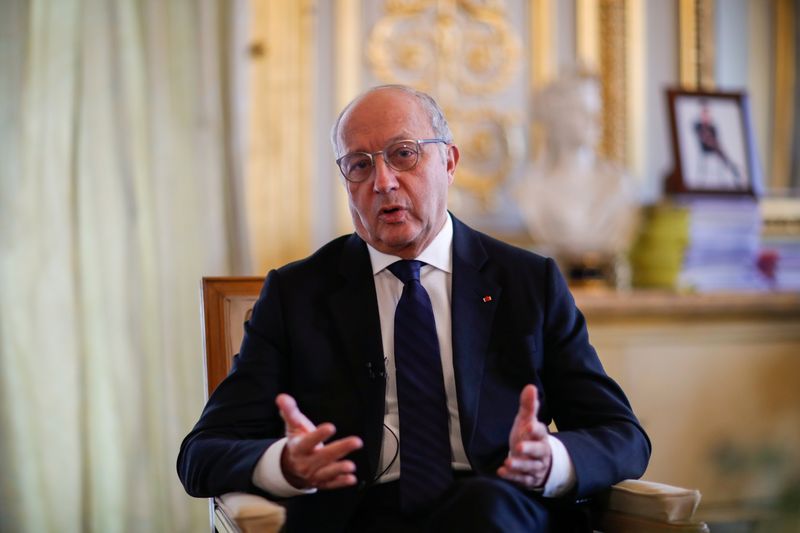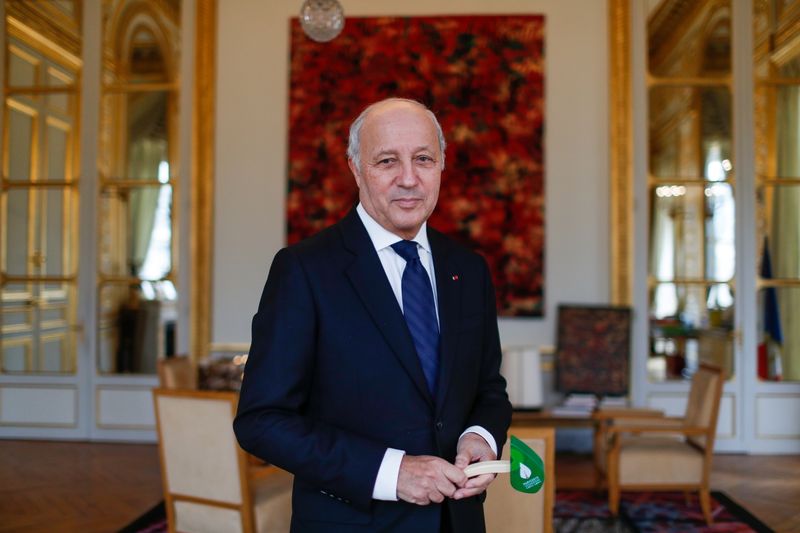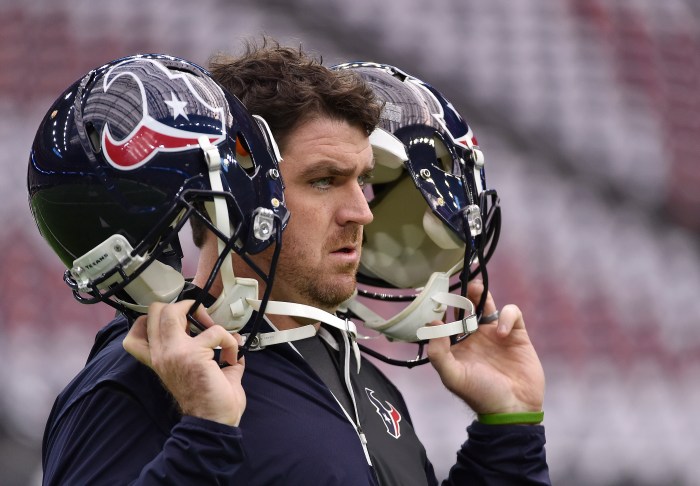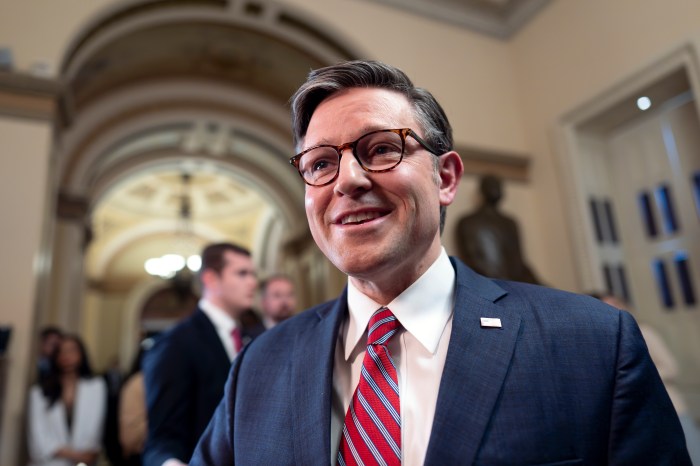PARIS (Reuters) – Laurent Fabius, the Frenchman who brought down the gavel to seal the Paris Accord on climate change five years ago, said he wished world powers had fought global warming as resolutely as they have confronted the coronavirus pandemic.
The agreement between almost 200 states on Dec. 12, 2015 was hailed as a potential turning point in efforts to contain global warming. It called for holding the increase in the global average temperature to well below 2°C above pre-industrial levels.
While the long-term trend in global temperatures is now downwards, progress is insufficient, Fabius said, blaming a lack of political will among many governments, not least the United States under President Donald Trump.
However, in an interview with Reuters, he highlighted some positive developments, including President-elect Joe Biden’s pledge to bring the United States back into the accord.
Governments have taken courageous financial and social decisions to halt the virus, but climate change poses an even graver threat, Fabius said.
“Unfortunately, we are not doing as much to fight climate change as we are to tackle the fallout from COVID,” said Fabius, who was chief negotiator at the Paris talks and is now president of France’s Constitutional Council.
He said it was critical that in the global recovery from the pandemic, the rebound is “green” and money is not ploughed into old, polluting industries.
The accord has brought some success, Fabius said. Scientific models had projected temperatures would increase 5 or 6 degrees and now estimated rises of 3 to 4 degrees by 2100. But this was still too high, he said.
The thresholds set by the Paris Accord reflect scientists’ beliefs that a rise in temperatures of more than 2 degrees would doom the planet to a future of rising sea levels, catastrophic floods, droughts and storms, and food and water shortages.
BIDEN: A GAME-CHANGER?
Fabius, a former prime minister who was France’s foreign minister at the time of the accord, recalled sleepless nights during two weeks of intense negotiations. The accord almost fell apart at the last moment.
He has a cherished replica of the green wooden hammer: cheers erupted and diplomats hugged as his gavel came down.
“Since then, it’s not been the same. In particular there was the backtracking by U.S. President Donald Trump, which was bad for America but more so the rest of the world,” he said.
The United States, the world’s second-largest greenhouse gas emitter after China, formally exited the accord on Nov. 4, a day after Election Day, fulfilling a Trump promise to withdraw.
“A certain number of countries said to themselves: if the world’s biggest power doesn’t respect its commitments, why should we?” Fabius continued.
But he said there had been a geopolitical shift in recent months. Biden has promised to rejoin the accord, China has pledged to be carbon neutral by 2060 and Japan by 2050.
Fabius predicted that Biden’s task will not be easy, with control of the U.S. Senate still up for grabs and energy lobby groups wielding huge influence in Washington.
“(But) to move things we need every country in the world to act, not just one county.”
(Reporting by Elizabeth Pineau; Writing by Richard Lough; Editing by Frances Kerry)

